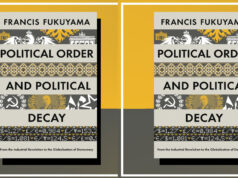Tahira Khan
The domain of International Relations needs a theoretical framework to define the course of events around the globe. One of the dominant theories of the twenty-first century is constructivism and post-structuralism. These theories have identified that states use varied discourses to shape their identity, role, and policy framework. Undoubtedly, the significant tool of any state is hard power but the current dynamics need narration building as well. Following that, states are now employing the course of the strategic narrative in order to support their foreign policy ventures.
It is pertinent to note why states use narratives to achieve their goals. Many states consider narrative building for foreign policy as well as to define the shared understanding of the past, present, and future of any nation. To answer this question, Thomas Colley, senior lecturer at LSW and visiting fellow at King’s College London, and Carolijn van Noort have written a book titled, “Strategic narratives, Ontological Security, and Global Policy”. Thomas Colley is an expert in Strategic Communication, Propaganda, War, and Disinformation.
According to Thomas Colley, states have focused narratives because of two reasons. Firstly, stories are an amenable form of communication for humankind. Secondly, narratives also help to evolve identities. Similarly, Geoffrey Roberts, historian and professor, has also shed light on the turn of narration in humanities. He has cited three main reasons for this change in human sciences. Firstly, the positivist field is lacking confidence in its discourse analysis. Secondly, post-structuralists have realized the importance of agency where an individual can impact society in magnificent ways. Besides, storytelling is the best suitable way to form identities and help social movements. Thirdly, postmodernists also argue that narratives require theory construction for human and social development.
Following that, it is important to define what narrative is. Catherine Kohler Riessman, Emerita Professor at Boston University, in her work titled, “Narrative Methods for the Human Sciences” defines the narrative. She says narrative construction requires a series of events that are meaningful for the specific public. These events are usually temporarily and causally interlinked to bring a message to people. Likewise, Alister Miskimmon, O’ Loughlin, and Roselle define strategic narratives as a key to understanding political objectives. They conceptualize strategic narrative as a cyclic process including formation, projection, and reception.
In contrast, other theories focus on the structural elements of narratives including plot, settings, and actors. However, every theoretical framework shares the assumption that narratives will be bought if they are well understood by people. Moreover, audiences usually employ metanarratives or myths to make sense of the world. That’s why strategic narratives are comprised of deeper discursive layers involving master narratives as well. Above all, Margaret Somers, American Sociologist, remarked that these myths shape what is seen as common sense in the world around us. Therefore, one can assume that myth and strategic narratives are stories to achieve a political objective.
Similarly, Jelena Subotic, a renowned political scientist, has explained that the state becomes a military hero, trustworthy ally, and humanitarian defender by constructing strategic narratives. Furthermore, these factors also define the identity of people as a nation. In addition to that, when strategic narratives reinforce mythology, myths acquire the position of social facts. Over the period of time, they don’t only persuade people but also craft the national identity of people. On the other hand, myths can be challenged but their repeated narration confirms their validity. In short, the strategic narrative is successful if it takes into account rationality, emotions, and appeal.
What is Ontological Security and Policy Change?
In the twenty-first century, states need both physical and ontological security. As per the words of Jennifer Mitzen, Ohio State University, Ontological security is the security of being. The state acquires this type of security by routinizing relationships with others and over a period of time, actors become part of these relationships. Both ontological and physical security has a constant motive. But, states seek these routinized relationships with rigidity. Besides, scholars also argue that without a stable sense of self, it is not possible for the agency to act accordingly in the given international environment. Thereupon, stories and myths are embedded in the state’s narratives and these tales are repeatedly narrated to stabilize identities of self and collectives.
In this regard, Thomas Colley has explained in his book that narrative construction help states formulate national biographies. National biographies also manage to articulate the shared understanding of the past, present, and future. In addition to that, he also explored that state is a typical protagonist of the narrative which makes it an actor of the strategic narratives. In addition to that, states set the plot by undertaking the required actions of narration building in given settings of the international realm. He further says that a state wanting to identify itself as a humanitarian hero will silence atrocities. However, states will indulge in ontological insecurity if it admits the charges of atrocities.
Following that, Thomas Colley explains that strategic narration is successful and reliable if it promises to justify a policy change. In the same vein, a policy is less likely to be adopted if it doesn’t provide future material benefits along with ontological security. In contrast to realism, the book approaches material gains and ontological security formulated by narration. Realists may argue external material interests shapes the policies of states whereas poststructuralists and constructivists maintain that states are shaped by internally formulated narratives. However, one factor is common among both branches i.e., material forces define the scope of policies.
China’s BRI in the context of Ontological Security and Policy Change
With regard to strategic narratives, Thomas Colley has investigated the responses of states to China’s BRI. As far as strategic narrative is considered, the foremost challenge ahead for China is to convince others regarding BRI prospects and futuristic models. Consequently, other states are required to affiliate BRI projects with their future material gains and ontological security parameters. Thereupon, if a state can merry both the ontological security requirement and material gain with regard to BRI, it will find a smooth relationship with China. However, if a state is facing challenges to have a fuller affiliation, it will either go for a complete rejection or partial engagement with Chinese authorities.
Moreover, Thomas Colley deliberates that BRI is a different kind of foreign policy venture. It offers diverse levels of involvement keeping in view the ontological security requirements and future prospects. Now, states can showcase complete affiliation with BRI by endorsing investment projects where the finance part is handled through a multilateral cooperation network. China is also offering to enhance bilateral and multilateral collaboration with non-binding future obligations. The varying degree of affiliation requirements will allow states to interlink strategic narratives with the policies of individual states.
Thomas Colley further elaborates on the main challenge which China is facing in the context of BRI. According to him, the material aspects of BRI are still hypothetical. It may bring prosperity or insecurity and debt traps. He also explains why there is much uncertainty about the project. States are hesitating to join China due to the latter’s poor human rights record or the threat of being colonized. In contrast, states are building alliances based on loose economic cooperation without focusing on the strategic narrative based on the BRI concept. Overall, the narrative of BRI advocates prosperity, connectivity, and peace.
Countries fully embracing the BRI’s strategic narrative
Kazakhstan
Kazakhstan is a country that is affiliating with BRI projects based on material benefits and ontological security grounds. BRI was first introduced in Kazakhstan. Through BRI, Kazakhstan is projecting its image as a connector between China and Eurasia. The BRI rhetoric also goes in line with Kazakhstan’s multi-vector diplomacy. The project also seems congruent with infrastructure programs of Kazakhstan such as the Nurly Zhol Program. The ontological security of Kazakhstan supports China’s viewpoint because of its cooperation, inclusiveness, and peace.
The then President of Kazakhstan, Nursultan, remarked in a second BRF meeting;
“It is clear that the world is already tired of conflicting geopolitical concepts and strives for geo-economics and joint development. The Belt and Road display much more than a complex of new opportunities for economic cooperation. The initiative reflects a strong historical demand for security, trade, and prosperity of more than 120 countries.”
The above-mentioned saying represents Kazakhstan’s understanding of the BRI project focusing on the material gains as well. It depicts the past as some era of conflicts whereas the future is predicted to be having cooperation, peace, and inclusivity.
Italy
Italy is less clear than Kazakhstan regarding material benefits and ontological security concerns. In the context of BRI, Italy is facing opposition from the EU and US. In response, the administration has said that they are focusing merely the material gains. They further reiterated that Italy will reject any colonizing attempt from China. As far as material gains are concerned, Italy is collaborating with China in third markets. It has also linked local infrastructure with BRI in the maritime, logistics, and port sectors.
To silence the domestic opposition, Italy has constructed three main strategic narratives. Firstly, the Italian government has explicitly said that any cooperation with China will be solely economic and will not damage the Italian position as a Euro-Atlantic country. Secondly, the government is drawing historical narratives to support affiliation with BRI. Historically, Italy is considered the center of the Mediterranean region where it was linked to China through the Silk Road. Thus, the current strategic narrative is taken as a past progression.
Countries partially embracing the BRI Project
United Kingdom
United Kingdom is one of the countries that has partially embraced the BRI Project. UK has strategically embraced the material gains of BRI but rejected its narrative based on ontological security concerns. However, Britain is also emphasizing helping China for the better prospects of the BRI Project by providing financial and legal expertise. In that spirit, Britain is helping China to showcase its superiority and concerns for the rules-based international platform
Netherlands
The Netherlands has also shown partial affiliation with BRI. The country has also produced an official policy document that narrated the idea of a new balance. The document pursues the BRI project due to shared interests while also taking note of ideological differences. It also stipulates the country’s mantra of openness along with safeguarding sovereignty, finance, and universal values. It is pertinent to note that Dutch narration goes in line with the policy framework of the EU. In this lieu, the Netherlands is collaborating with China in the third market.
Mexico
As per the statement of the Chinese ambassador to the Latin American nation, Zhu Qingqiao, the authorities want Mexico to join the BRI. Although, Mexico has not conceded to Mou but the governmental rhetoric suggests openness. During the second BRF, Mexico signed several agreements including International Commercial Dispute Prevention and Settlement Organization. Besides, Mexico also agreed to collaborate in various IT and science sectors.
According to the Undersecretary of Foreign Trade Luz Maria De la Mora, Mexico wants a friendly and sustainable relationship with China. The Mexican governmental positive gesture implies that ontological security is not disturbed by having close collaboration with China provided that it does not hamper US-Mexico ties. However, the material gains of Mexico are not specific. This has led Mexico to partially affiliate with China.
It is pertinent to note that US and USMCA (United States-Mexico-Canada Agreement) are defining the China-Mexico ties. Mexico has ratified USMCA which has limited Mexican cooperation with China.
Countries completely rejecting the BRI Project
United States
In 2018, the US released the DoD (Department of Defense) report to express concerns over BRI. According to the report, China is a national security threat to the US. As per the US narrative, China is seeking to minimize US influence in the Indo-Pacific region through BRI. In the same vein, the report indicates that BRI is helping China to acquire a military advantage in the region by providing access to foreign ports and debt-trap diplomacy. The report has also mentioned that BRI is undermining the sovereignty and economy of host countries. In this context, it has specified the list of seventeen host countries.
Basically, the ontological security of the US is said to be undermined severely by BRI. It is due to the narration that the US is a defender of international norms and state sovereignty. Therefore, the DoD report specifies China using its economic model to forge political affiliation with countries in the region and beyond. Similarly, the 2021 DoD report also identifies China as an adversary of the US. It specifies the same reasons mentioned in the previous document.
India
India has rejected the BRI mantra of China owing to its sovereignty and national security concerns. The very first concern is the CPEC (China-Pakistan Economic Corridor) which is the flagship project of BRI. CPEC route passes through Pakistan-controlled Kashmir which has been claimed by India. The second concern of India relates to its status in the Indo-specific region. Both China and India are aiming to become the regional power and decide the rules of the region as well. Thus, BRI is undermining both the ontological security and Physical geography of India.
Disclaimer: Views expressed in this article are those of the author and Balochistan Voices not necessarily agrees with them.
Share your comments!








